Written by
Wilsey YoungSummary: This post primarily offers solutions to the Unknown USB Device Port Reset Failed error on Windows 10/11. iBoysoft Data Recovery for Windows is recommended for retrieving lost data because of unexpected errors. -From m3datarecovery.com
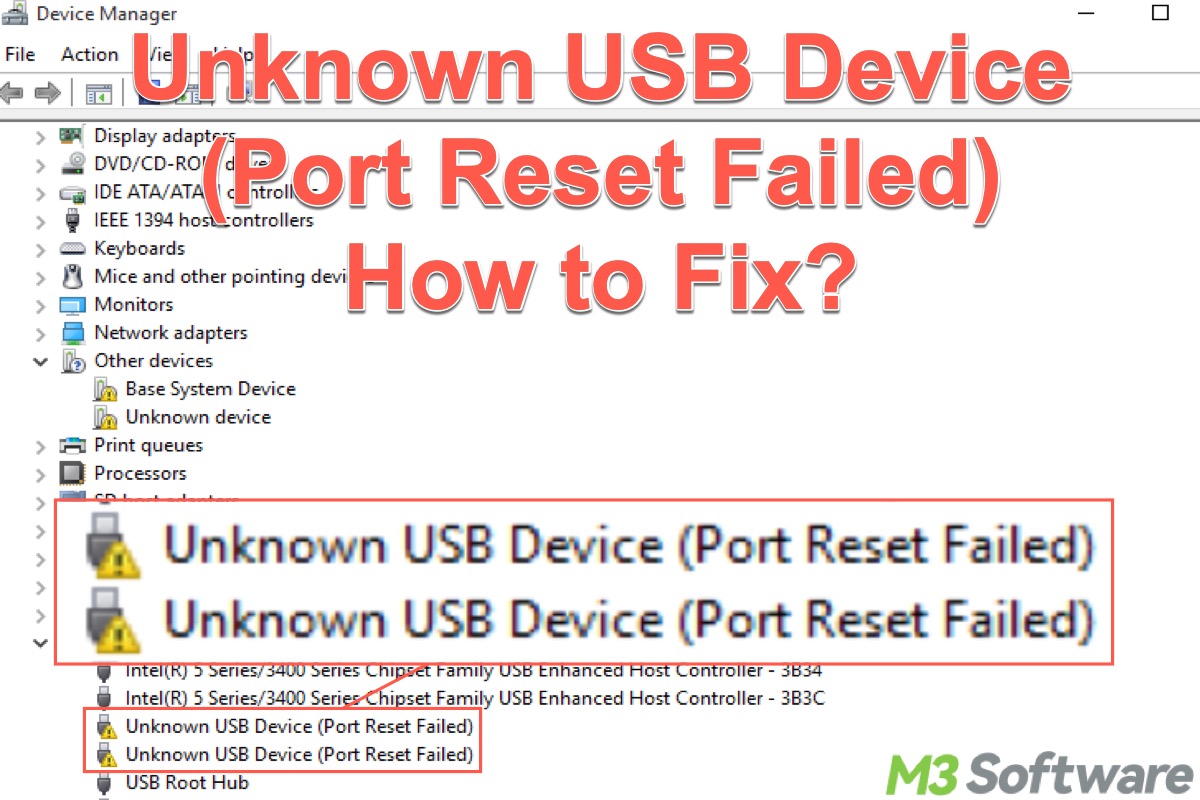
The “Unknown USB Device (Port Reset Failed)” error commonly occurs when a USB device (e.g., USB flash drive) is connected to a Windows PC. This error indicates that there's something wrong with the inserted USB device, which cannot work normally.
When the Unknown USB Device Port Reset Failed error occurs, the USB device icon in Windows Device Manager is accompanied by a yellow triangle with an exclamation mark.
This Unknown USB Device (Port Reset Failed) error can typically be caused by:
- Driver-related issues.
- Corrupted system files or bad sectors.
- Hardware problems.
- Sudden power failure or power shortage.
This post primarily shows how to fix Unknown USB Device (Port Reset Failed) error on Windows 10/11. It also shows how to retrieve lost data due to this USB device error.
Tap on the following buttons to share the post with your friends!
How to recover lost data after the Unknown USB Device Port Reset Failed Windows 10/11
The Unknown USB Device Port Reset Failed error can happen unexpectedly and is caused by various problems. This USB device error can lead to serious data loss, as it can make your USB storage device corrupted or inaccessible. Furthermore, some specific repair processes can put your data at risk.
All in all, retrieving your data from the faulty USB storage device is what needs to be done immediately. Fortunately, you can download iBoysoft Data Recovery for Windows to complete the data recovery with ease.
iBoysoft Data Recovery for Windows is a professional and intuitive data recovery tool that can help you recover lost or deleted data effortlessly from a USB drive, HDD, SSD, SD card, or other storage devices, you name it!
In addition, this tool specializes in retrieving data from the storage devices that become corrupted or inaccessible for various reasons, like improper device ejection, sudden power failure, virus attack, unexpected error, or more.
When your USB storage device is confronted with the Unknown USB Device Port Reset Failed error, follow the steps below to recover the data:
- Download, install, and launch iBoysoft Data Recovery for Windows.
- Choose the "Data Recovery" module.
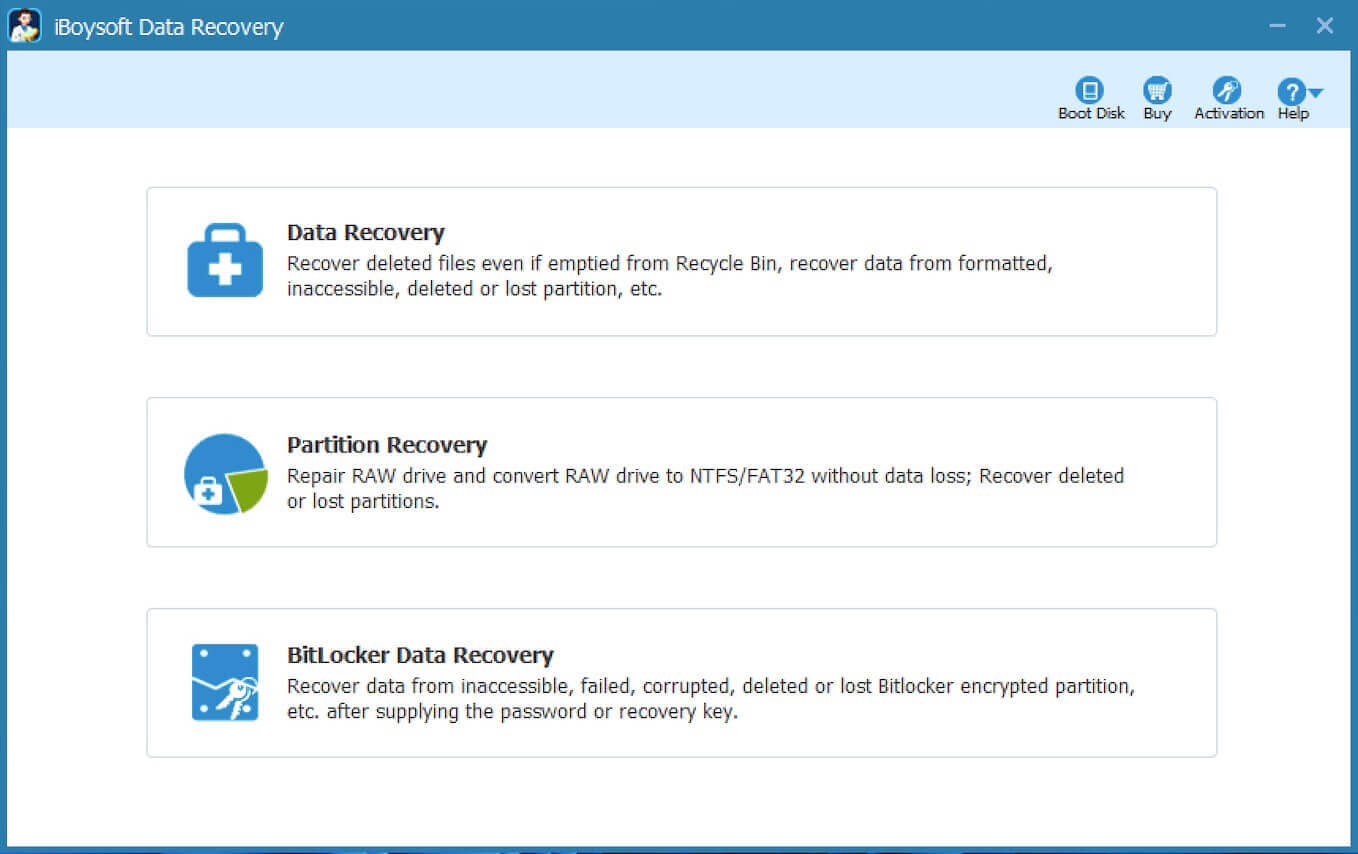
- Select the USB storage device from the list and tap on the "Next" button.
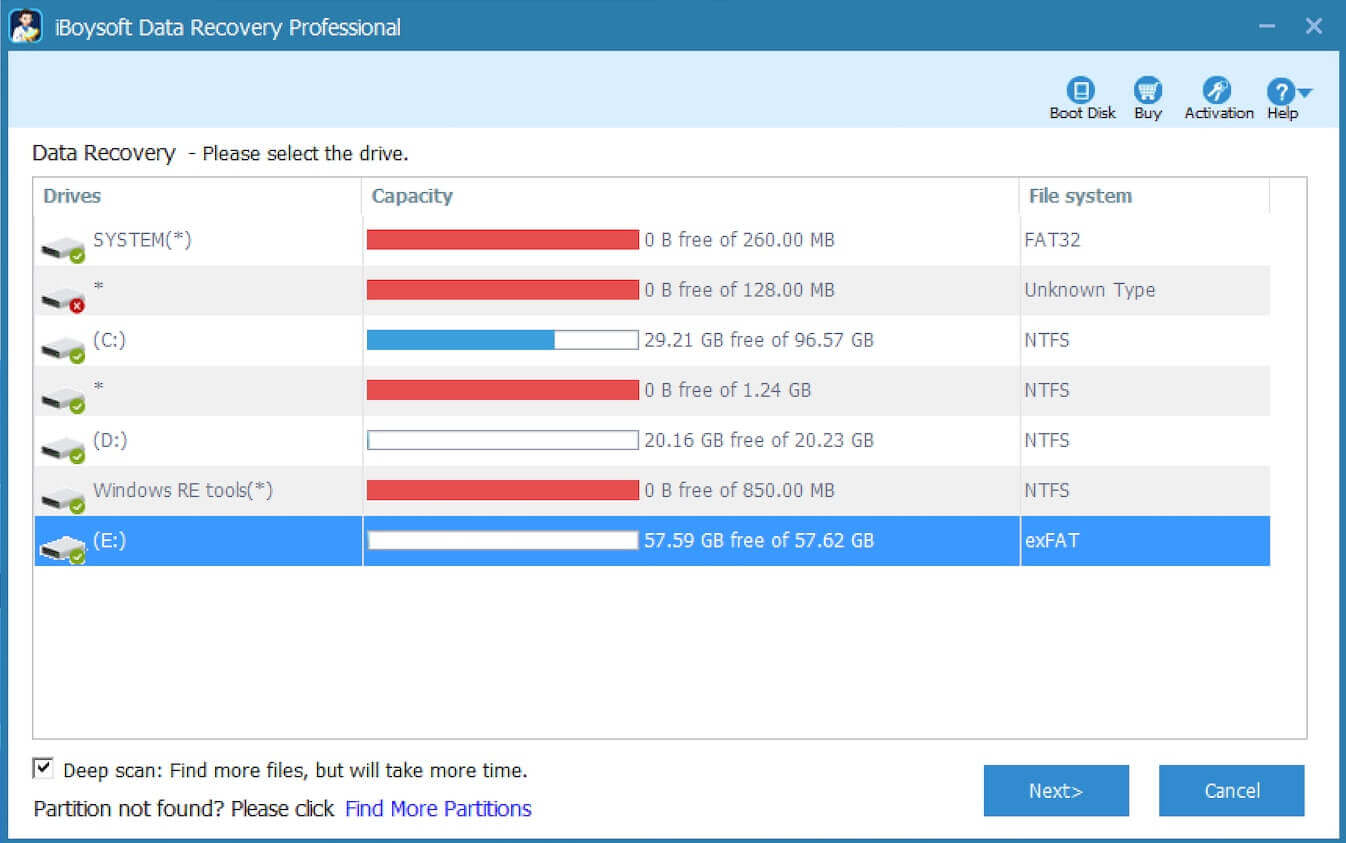
- When the scanning is done, check the files in the scanning results and use the preview feature to verify if the files are retrievable.
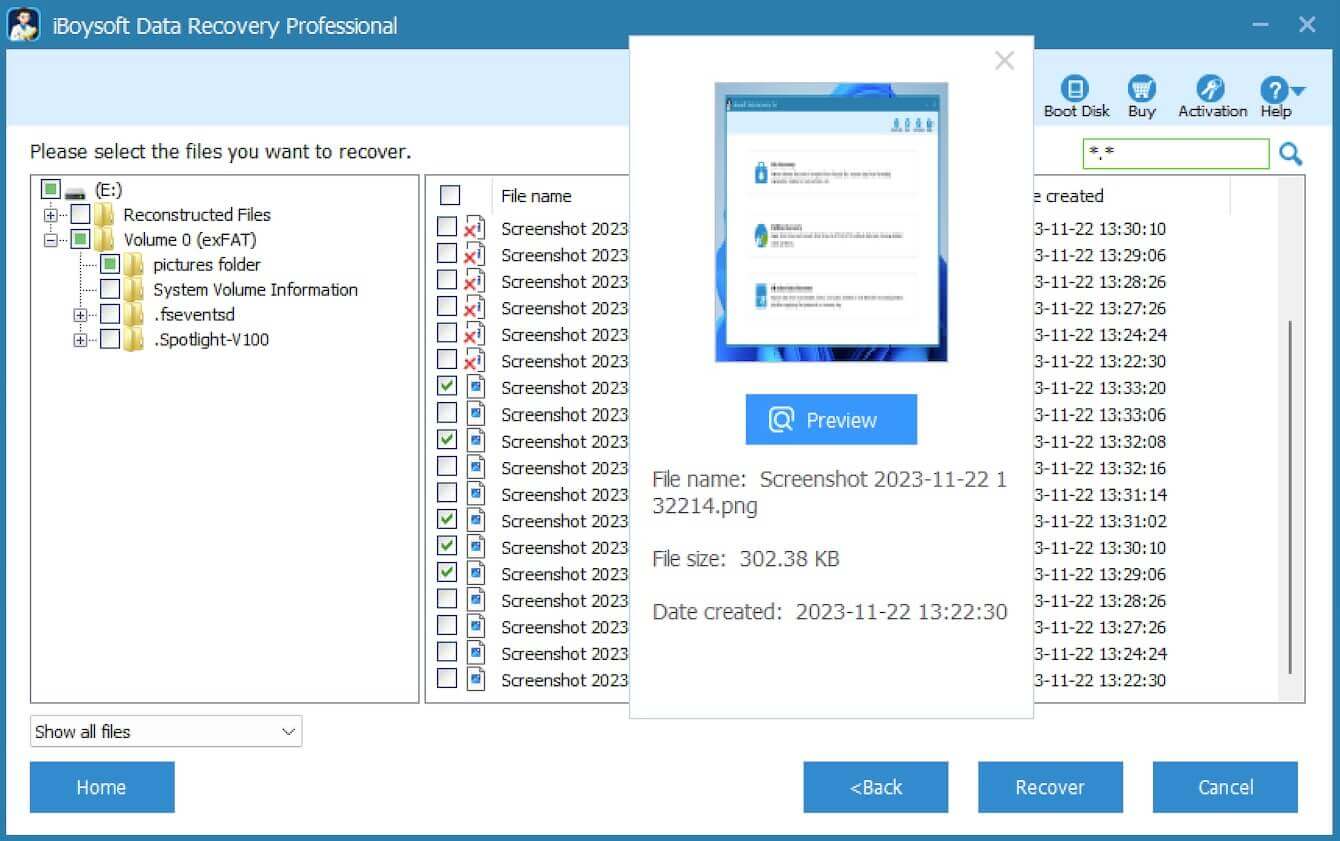
- Choose the files you need and click the "Recover" button to save the data to another healthy location (e.g., partition or disk).
How to fix Unknown USB Device Port Reset Failed Windows 10/11
On condition that the data recovery is complete, you can now use the following methods to fix the Unknown USB Device Port Reset Failed error without any worry of data loss.
Restart your PC and try different USB ports
Regarding the Unknown USB Device Port Reset Failed error, restarting your Windows PC and using other USB ports are the first two steps we suggest. Faulty USB ports or connectors can trigger the Unknown USB Device Port Reset Failed error.
Alternatively, insert the USB device into another PC if available. If these methods don't work out, the solutions below could help.
Run the troubleshooter to fix Unknown USB Device Port Reset Failed
When encountering the Unknown USB Device Port Reset Failed error, running the built-in hardware and device troubleshooter may help repair the issue. Here's how to fix Unknown USB Device Port Reset Failed through the troubleshooter on Windows:
- Press the "Windows+I" keys to open Windows Settings.
- Choose "Update & Security" > "Troubleshoot."
- Tap on "Additional troubleshooter."
- Run the "Hardware and Devices" troubleshooter.
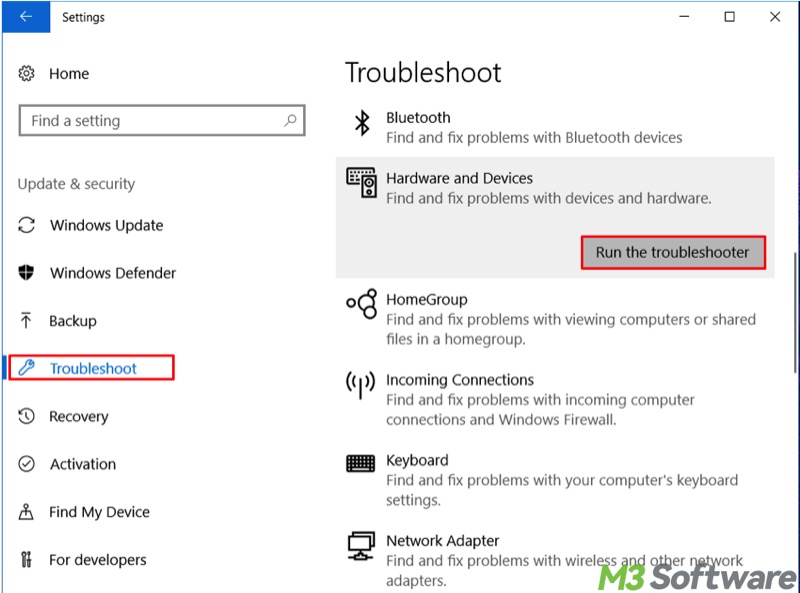
- Follow the instructions to complete. The troubleshooter can try fixing the detected problems.
Reinstall the USB device driver to fix Unknown USB Device Port Reset Failed
The faulty USB device driver could incur the Unknown USB Device Port Reset Failed error. Updating the driver by reinstalling the device through the Device Manager on Windows may help you out:
- Search for "Device Manager" through the Windows search box and open the utility.
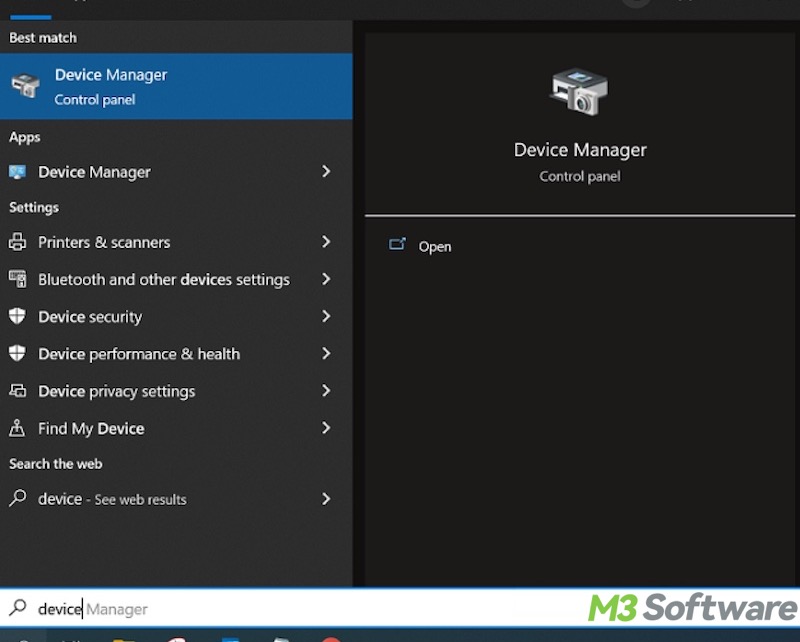
- Right-click on the faulty USB device and click "Uninstall."
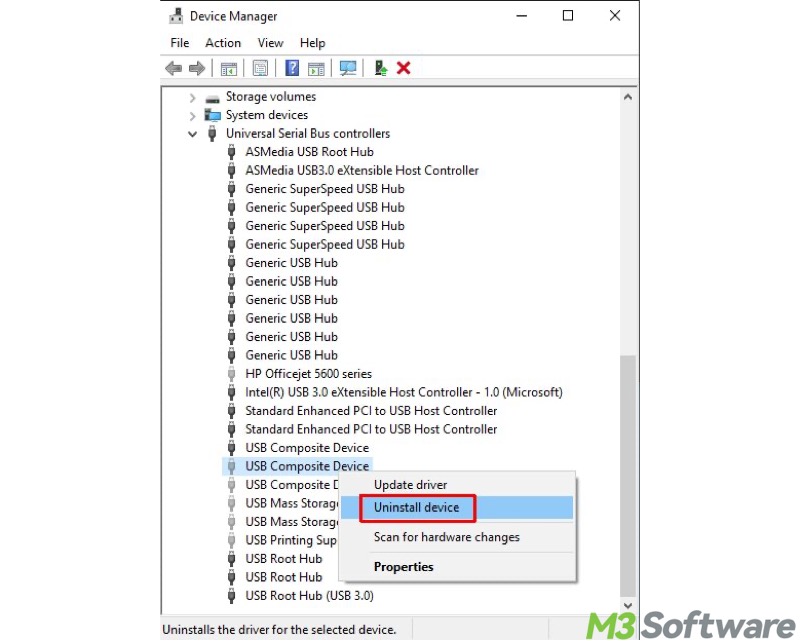
- Restart your PC once the driver is removed. The driver will be reinstalled automatically after a restart. Otherwise, move on to the next step.
- Click the "Action" tab in "Device Manager" and choose "Scan for hardware changes." This detects the hardware changes and reinstalls the device drivers.
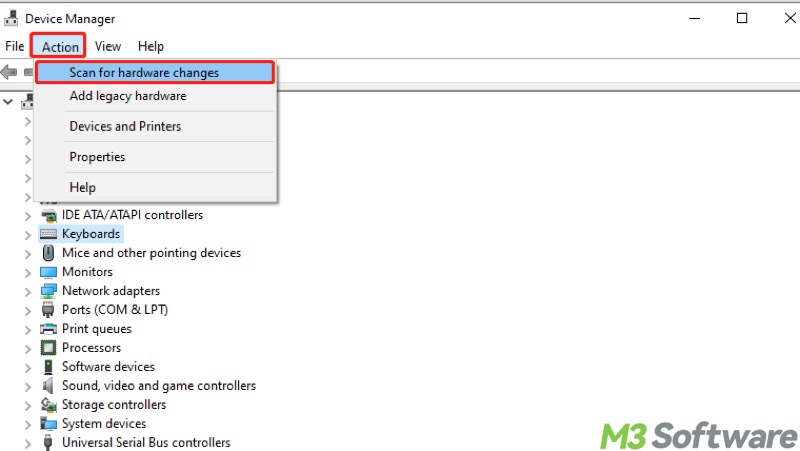
To ensure the newest driver, you can also manually download the latest version from the device manufacturer's website.
The buttons below can help share the post quickly
Run an SFC scan to fix Unknown USB Device Port Reset Failed
If you are using a USB storage device, run the System File Checker (SFC) tool through the Command Prompt on Windows to scan for and repair corrupted system files, which could be the culprit for the Unknown USB Device Port Reset Failed error.
Here's how to fix Unknown USB Device Port Reset Failed through the System File Checker:
- Input "cmd" into the Windows search box.
- Select "Run as administrator."
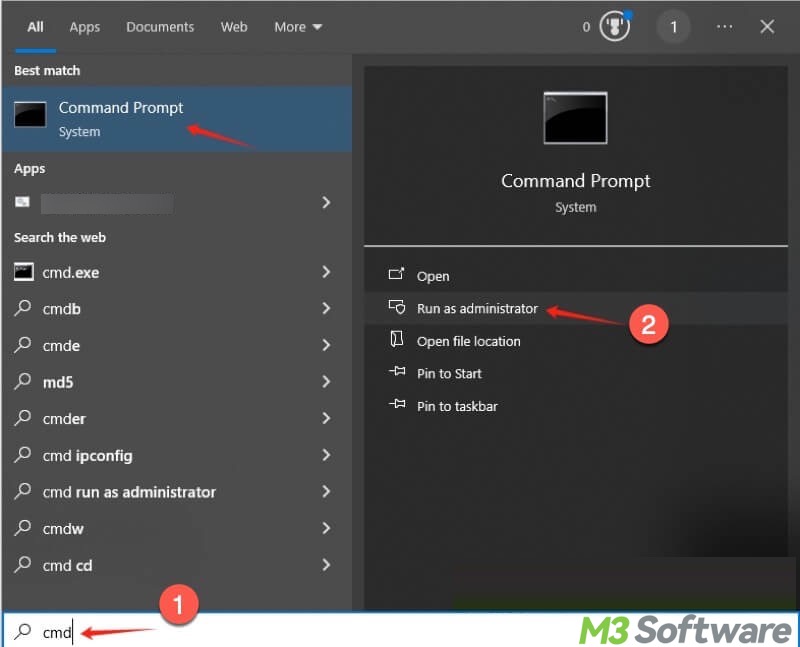
- Input "sfc /scannow" and press the "Enter" key on your keyboard.

- Wait and see if any file is repaired.
Disable the USB selective suspend setting to fix Unknown USB Device Port Reset Failed
The "USB selective suspend setting" on Windows is a power-saving feature that allows Windows to suspend individual idle USB devices. This feature is typically used on a Windows laptop for prolonging battery life.
However, enabling this setting may result in the Unknown USB Device Port Reset Failed error. Here's how to fix Unknown USB Device Port Reset Failed by disabling USB selective suspend setting on Windows:
- Open "Control Panel" on Windows.
- Choose "Power Options" from the menu. You may need to change the viewing method to "Large icons."
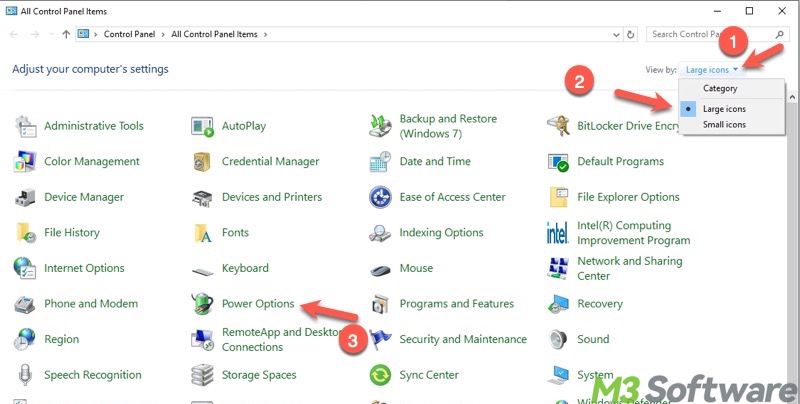
- Tap on "Change plan settings."
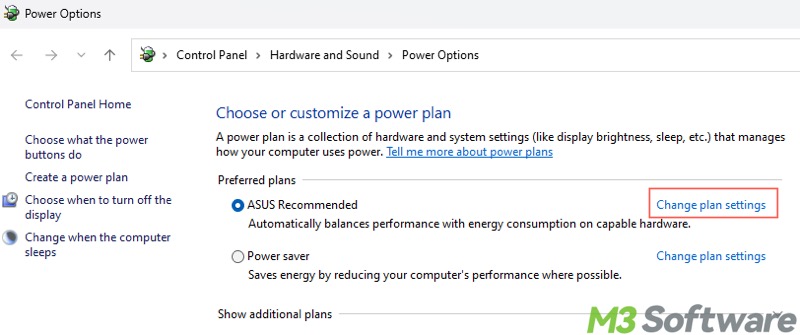
- Click "Change advanced power settings."
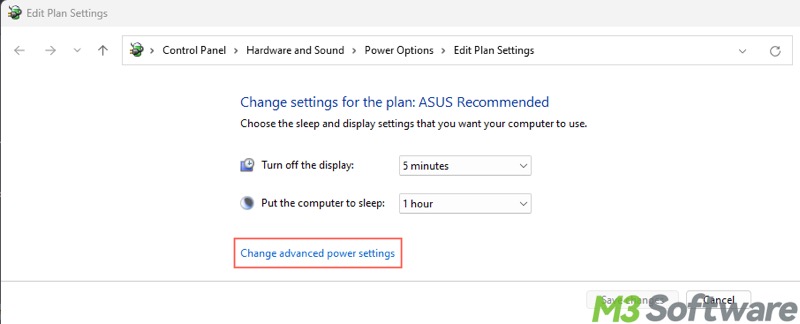
- Expand "USB settings" > "USB selective suspend setting."
- Disable the "On battery:" option.
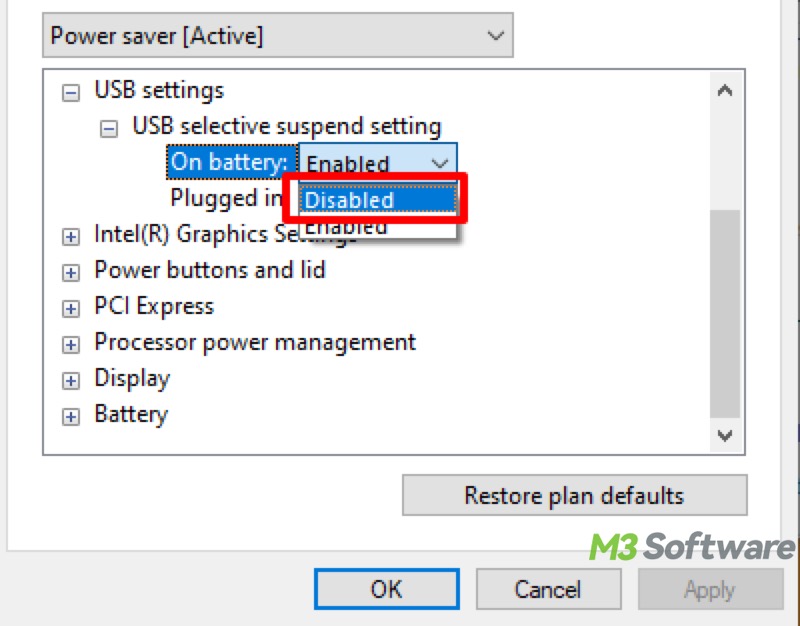
- Click "Apply" and "OK."
Update Windows to fix Unknown USB Device Port Reset Failed
The old or outdated Windows may lead to the Unknown USB Device Port Reset Failed error. Update your Windows through the Settings and see if it works out.
- Open “Settings” on Windows.
- Choose “Update & Security.”
- Select “Windows Update” from the left side panel.
- Click “Check for updates” or directly download and install the available updates.
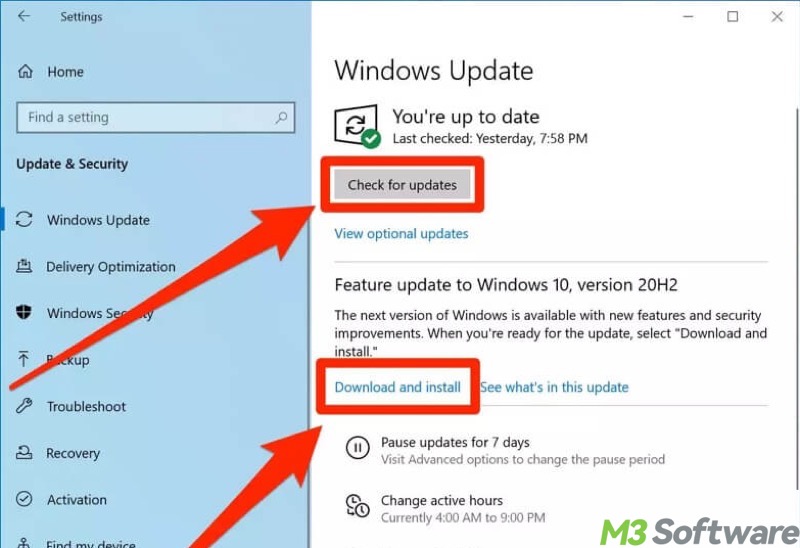
Update BIOS to fix Unknown USB Device Port Reset Failed
Some Windows 10/11 users reported that the outdated BIOS or UEFI could be to blame for the Unknown USB Device Port Reset Failed error. Therefore, updating the BIOS is a way out!
If your computer motherboard uses UEFI, move on to downloading the BIOS update files from the manufacturer's site, as users and manufacturers still refer to UEFI updates as BIOS updates for marketing reasons.
Note: We suggest backing up files before updating the BIOS to prevent further data loss.
- Prepare an empty USB flash drive formatted with the FAT32 file system.
- Visit the motherboard manufacturer's website, search for the motherboard with the model number, and download the BIOS update files.
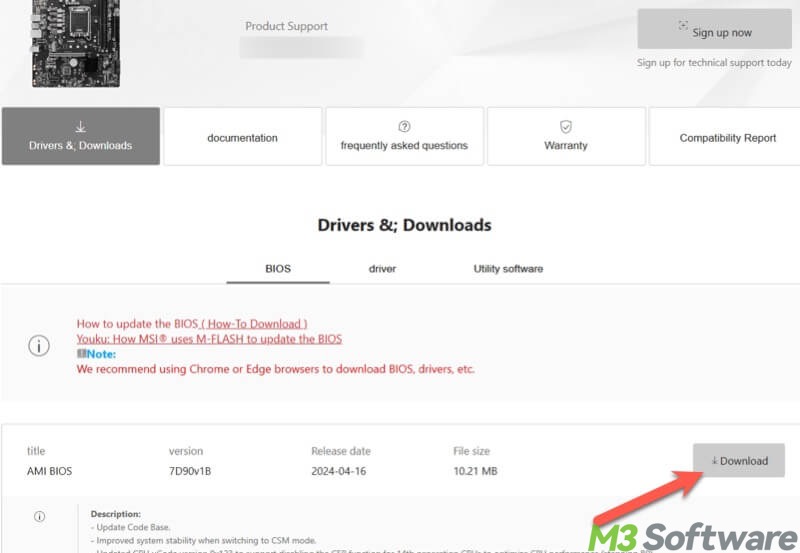
- If the downloaded file is compressed, unzip it to extract the update files. Then delete the original compressed file.
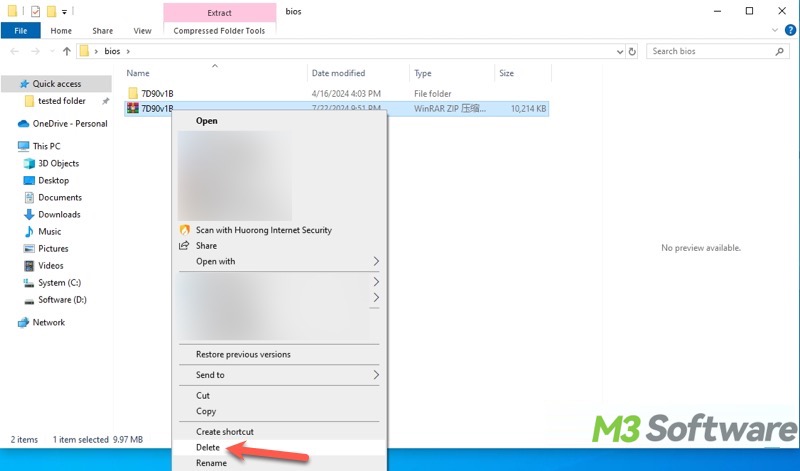
- Restart your PC and continuously press "Esc", "Del", or "F1" (depending on the motherboard) to enter the BIOS or UEFI.
- Switch to the advanced mode and choose M-FLASH, Q-FLASH, EZ-FLASH, or a similar item.
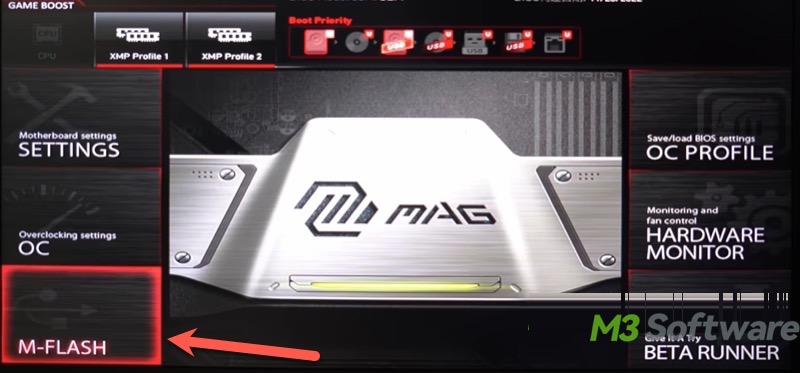
- Open the USB flash drive containing the BIOS update files, and press the "Enter" key on your keyboard to select the update files.
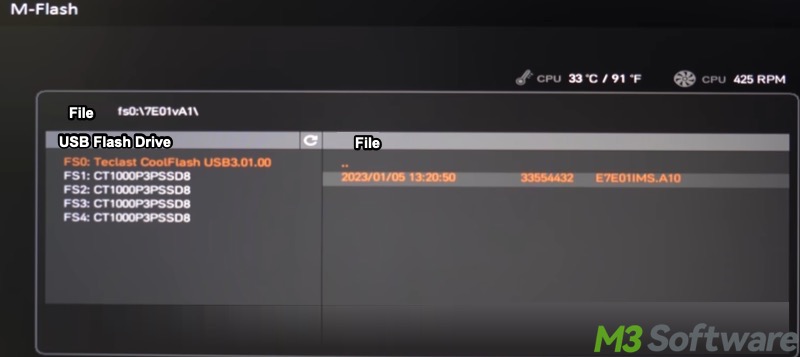
- Follow the on-screen prompts to complete the BIOS/UEFI update.
- After the update is finished, you may need to manually exit the BIOS/UEFI and let the system boot up as usual.
Conclusion
Recovering your data should be the first priority before fixing the Unknown USB Device Port Reset Failed error. Testing the USB device on another USB port or another Windows computer is necessary to check whether the hardware problems cause the error.
Share the post by clicking the following buttons
Unknown USB Device Port Reset Failed indicates a problem with a USB device's communication with the computer. Hardware malfunction, driver-related issues, or power management settings on Windows can cause this error.
The Unknown USB Device (Port Reset Failed) error on Windows does not directly cause data loss. However, this error can prevent your storage device from being recognized or used properly. If the error cannot be repaired eventually, data loss is inevitable. You need to download the third-party data recovery tool, like iBoysoft Data Recovery for Windows, to retrieve the data first before setting out to fix the error.
Yes! iBoysoft Data Recovery for Windows can help you easily restore lost data from a USB drive, USB flash drive, SD card, or other storage devices, either internal or external. In addition, more than 1000 types and formats of files are supported!
